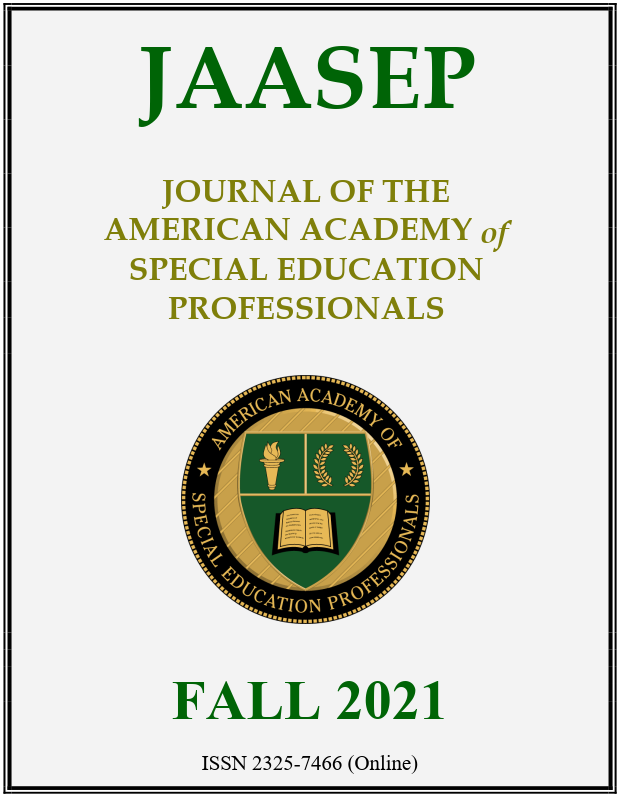Association of Intellectual Risk Taking with Science Achievement of Gifted Students and Comparison of their Intellectual Risk Taking in Different Grades and Gender
Agaliotis, I., & Kalyva, E. (2019). Motivational differences of Greek gifted and non-gifted high-achieving and gifted under-achieving Students. International Education Studies, 12(2), 45-56. DOI: https://doi.org/10.5539/ies.v12n2p45
Akdağ, E. M., Köksal, M. S., & Ertekin, P. (2017). Üstün yetenekli ortaokul öğrencilerinin fen öğrenmede zihinsel risk alma davranışlarının sınıf düzeyi ve cinsiyet değişkenleri açısından incelenmesi. Adnan Menderes Üniversitesi Sosyal Bilimler Enstitüsü Dergisi, 4(2), 16-25. DOI: https://doi.org/10.30803/adusobed.321024
Akkaya, G. (2016). Rol model içerikli animasyonların üstün yetenekli 4. Sınıf öğrencilerinin fen bilimleri dersinde zihinsel risk alma davranışları ve öğrenmelerine etkisi (Doctoral dissertation). İnönü University, Malatya.
Arfa, S., Lovell, M., Podell, K., & Goldberg, E. (1998). Wisconsin Card sorting Test performance in above average and superior school children: Relationship to intelligence and age. Archives of Clinical Neuropsychology, 13, 713-720. DOI: https://doi.org/10.1093/arclin/13.8.713
Aşut, N. (2013). Üstün yetenekli öğrencilerin epistemolojik inançlarının fen öğrenmeye yönelik motivasyon düzeyi ve fen başarısıyla ilişkisi (Master's thesis). İnönü University, Malatya. Beghetto, R. A. (2009). Correlates of intellectual risk taking in elementary school science. Journal of Research in Science Teaching, 46 (2), 210– 223. DOI: https://doi.org/10.1002/tea.20270
Beghetto, R.A. & Baxter, J.A. (2012). Exploring student beliefs and understanding in elementary science and mathematics, Journal of Research in Science Teaching, 49 (7), 942-960. DOI: https://doi.org/10.1002/tea.21018
Betts, G. T., & Neihart, M. (1986). Implementing self-directed learning models for the gifted and talented. Gifted Child Quarterly, 30, 174–177. DOI: https://doi.org/10.1177/001698628603000406
Byrnes, J. P. (1998). The nature and development of decision-making: A self-regulation model. Hillsdale, NJ: Erlbaum.
Cakır, E. & Yaman, S. (2015). The relationship between students’ intellectual risk-taking skills with metacognitive awareness and academic achievement, Gazi Journal of Educational Sciences, 1(2), 163-178.
Chan, D. W. (2001). Learning styles of gifted and nongifted secondary students in Hong Kong. Gifted Child Quarterly, 45, 35–44. doi:10.1177/001698620104500106 DOI: https://doi.org/10.1177/001698620104500106
Chin, C. (2007). Teacher questioning in science classrooms: Approaches that stimulate productive thinking. Journal of Research in Science Teaching, 44, 815–843. Clifford, M. M. (1991). Risk taking: Theoretical, empirical, and educational considerations. Educational Psychologist, 26(3-4), 263-297. DOI: https://doi.org/10.1002/tea.20171
Clifford, M., & Chou, F. (1991). Effects of payoff and task context on academic risktaking. Journal of Educational Psychology, 83, 499-507. DOI: https://doi.org/10.1037//0022-0663.83.4.499
Dascı, A.D. & Yaman, S. (2014) Investigation of intellectual risk-taking abilities of students according to Piaget's stages of cognitive development and education grade, Journal of Theoretical Educational Science, 7(3), 271-285 de Souza Fleith, D. (2000) Teacher and student perceptions of creativity in the classroom environment, Roeper Review, 22(3), 148-153. DOI: https://doi.org/10.1080/02783190009554022
Dweck, C.S. (1999). Self-theories: Their role in motivation, personality and development. Philadelphia: Taylor & Francis.
Fesser, S., Martignon, L. Engel, J., & Kuntze, S. (2010). Risk perception and risk communication of school students: First empirical results from Riko-Stat. In C. Reading (Ed.) Proceedings from 8th International Conference on the Teaching of Statistics. Ljubljana, Slovenia: International Statistical Institute and International Association for Statistical Education Fraenkel, J., Wallen, N., and Hyun, H.H. (2012). How to design and evaluate research in education. (8th ed.). Boston: McGraw Hill.
Kanevsky, L. & Keighly, T. (2003). To produce or not to produce? Understanding boredom and the honor in underachievement. Roeper Review, 26 (1), 20–28. DOI: https://doi.org/10.1080/02783190309554235
Köksal, M.S. (2013). Comparison of Gifted and Advanced Students on Motivation Toward Science Learning and Attitude Toward Science, Journal of the American Academy of Special Education Professionals, 1, 146-158. DOI: https://doi.org/10.64546/jaasep.202
Lupkowski-Shoplik, A. E., & Assouline, S. G. (1994). Evidence of extreme mathematical precocity: Case studies of talented youths. Roeper Review, 16, 144–151. DOI: https://doi.org/10.1080/02783199409553561
McBee, M. (2010). Modeling outcomes with floor or ceiling effects: An introduction to the Tobit model. Gifted Child Quarterly, 54(4), 314-320. DOI: https://doi.org/10.1177/0016986210379095
Park, S. & Oliver, J.S. (2009). The transition of teachers’ understanding of gifted students into instructional strategies for teaching science. Journal of Science Teacher Education, 20(4), 333-351. DOI: https://doi.org/10.1007/s10972-009-9138-7
Renzulli, J.S. (2005). The three-ring definition of giftedness: A developmental model for promoting creative productivity. In R.J. Sternberg & J.E. Davidson (Eds.), Conceptions of giftedness (2nd ed., pp. 246-280). New York: Cambridge University Press. DOI: https://doi.org/10.1017/CBO9780511610455.015
Rogers, K. B. (2007). Lessons learned about educating the gifted and talented: A synthesis of the research on educational practice. Gifted Child Quarterly, 51, 382-396. DOI: https://doi.org/10.1177/0016986207306324
Sandhu, T. & Kaur, V. (2015). Scientific giftedness: Exploring the creativity correlates, Journal of Contemporary Psychological Research, 2(1), 6-19.
Seidenberg, M., Giordani, B., Berent, S., & Boll, T. (1983). IQ level and performance of the Halstead–Reitan Neuropsychological Test battery for older children. Journal of Consulting and Clinical Psychology, 51(3), 406–413. DOI: https://doi.org/10.1037//0022-006X.51.3.406
Streitmatter, J. (1997). An exploratory study of risk taking and attitudes in a girls-only middle school math class. The Elementary School Journal, 98, 15–26. DOI: https://doi.org/10.1086/461882
Tay, B., Özkan, D., & Tay, B.A. (2009). The effect of academic risk taking levels on the problem solving abaility of gifted students. Procedia Social and Behavioral Sciences, 1, 1099-1104. DOI: https://doi.org/10.1016/j.sbspro.2009.01.198
Van Tassel-Baska,J. (2001). The talent development process: What we know and what we don't know, Gifted Education International, 16, (1), 20-28. DOI: https://doi.org/10.1177/026142940101600105
Von Aufschnaiter, C., Erduran, S., Osborne, J., & Simon, S. (2008). Arguing to learn and learning to argue: Case studies of how students’ argumentation relates to their scientific knowledge. Journal of Research in Science Teaching, 45, 101–131. DOI: https://doi.org/10.1002/tea.20213
Yaman, S., & Koksal, M. S. (2014). Fen Ogrenmede Zihinsel Risk Alma ve Yordayicilarina Iliskin Algi Olçegi Turkçe Formunun Uyarlanmasi: Geçerlik ve Guvenirlik Çalismasi. Journal of Turkish Science Education, 11(3), 119-142.
